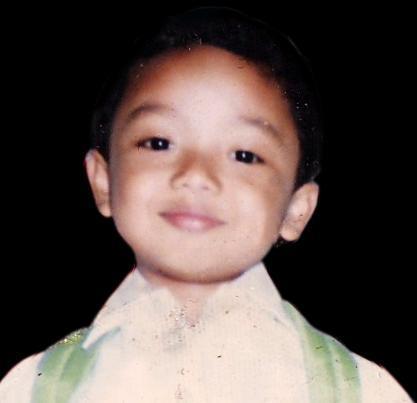the mountain's other side
below is a personal reflection
of an immersion experience for liberation theology class
+++++++++++++++++++++++++++++++++++++++++++++++++++++++++++++
It was not difficult to turn around and, after three days in Calisitan, Nueva Ecija with the Igorots, just say goodbye. But what I find more disconcerting is the reality that life goes on for all six of my brothers and sister. I did not go and look forward to changing anyone’s life in the community but it was sad to hear Nanay Merlyn say: Wala na naman silang kalaro.
All six of my brothers and sisters would have been left with no one but themselves to play with, yet again. Their closest neighbors are an hour’s hike away. Three of them would have to walk perilously to school and back home yet again. Their school is an hour and a half’s hike away. Yes there are six of them in the family but they hardly talk, even to each other, and their parents think it is because of the seclusion and the resulting zero possibility to engage with others. Yes they go to school but because the hike home is long and dangerous, they hardly have time to mingle with their schoolmates. In short, they simply are not used to talking to anyone about anything. I wonder how these kids can tell their story, something I think they need to do.
The school tries. The only girl among the siblings shares the Christmas song she memorized in school, after thirty minutes of playful pleading. But because the school has only one teacher, the little girl shares the class with her elder brother and, in a few months, with her younger brother.
The parents work hard too. Tatay Danny proudly shares the land they own and how everyone in the family helps in the farming. Meanwhile, Nanay Merlyn shares her skills in weaving baskets and other saleable goods. But both of them have health conditions that hang on a delicate balance. Pretty soon, the episode wherein Nanay Merlyn had to be rushed to a hospital hours away in Nueva Ecija might just happen again to either one of them. They do not have enough money for the medicines that can prevent this episode from reoccurring.
It is easy to dismiss their story as something we already have heard before. But what struck me most was the attitude, the resilience that I saw in them. When contemplating about the life in the mountains as compared to life in the city, Tatay Danny had this to say: Ibang istilo lang ang pamumuhay dito. That summed it up for me.
As a story that is very similar to that of many other Filipino families I have encountered, say of a Sumilao farmer or a single parent in the Payatas dumpsite, it was easy to find the life of Tatay Danny and his family as one of misery and despair. But their attitude demands that I rethink this. Theirs is but a different style of living, one not any less than the style and convenience I am used to in the city. It is a different style with its own disadvantages as seen in the little access to basic needs. But it is a style with its own advantages too. That side of their life that is so much part of how Tatay Danny summed it up for me.
The community program ended at around midnight. I was hoping it would last until early in the morning so we would have daylight at least to help us go home. But no! With their month-old baby around Tatay Danny’s arms, Nanay Merlyn and my five little brothers and sister before me, we walked home with only the full moon and the one small flashlight of my immersion partner to light the way. It took us longer than usual, about two hours. It was a slow hike, one that allowed me to see the stars like I have never seen them before and to wonder about the immensity of nature surrounding us. Clearly an experience only this style of living could provide. This style has its own problems and so life goes on for all six of my brothers and sisters. But it is a style no less ennobling, a side of being secluded I never expected to see.


0 Comments:
Post a Comment
<< Home